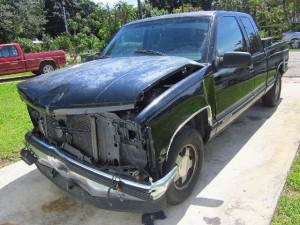Can a worker injured outside the state of Florida be eligible for Florida workers’ compensation benefits? The answer lies in § 440.09(1)(d), Fla. Stat.:
If an accident happens while the employee is employed elsewhere than in this state, which would entitle the employee or his or her dependents to compensation if it had happened in this state, the employee or his or her dependents are entitled to compensation if the contract of employment was made in this state, or the employment was principally localized in this state. However, if an employee receives compensation or damages under the laws of any other state, the total compensation for the injury may not be greater than is provided in this chapter.
Key elements for Florida jurisdiction:
- The contract of employment was made in Florida; or
- The employment was principally localized in Florida.
 Florida Injury Attorney Blawg
Florida Injury Attorney Blawg










